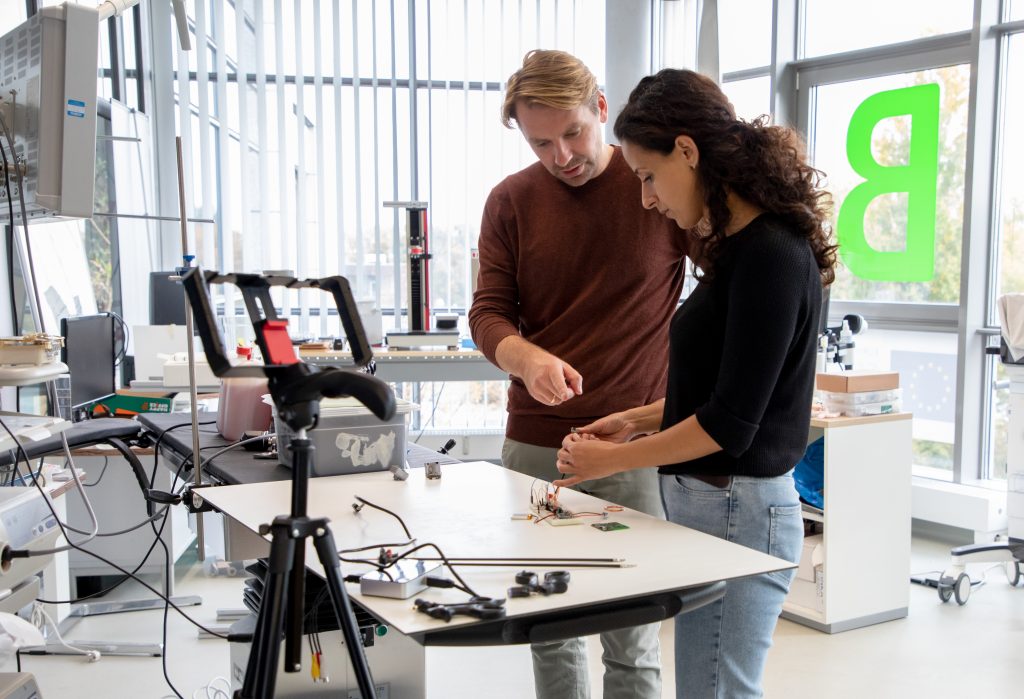Surgical trauma
Robotic surgery emerges as a technical innovation in surgical oncology featuring dramatically reduced wounding and tissue damage as compared to open tumor surgery. Little is known on the immunological and neurological impact of robotic surgery as compared to classical resection procedures. In this research sector we perform in depth correlative and functional cellular investigation to deliver quantitative data to reduce the gap of knowledge in those contexts. Results might help to stratify patients that are particularly prone to develop immunological/neurological complications after surgery or those that are particular sensitive to one type of surgical removal of their tumor. Moreover, since immunotherapeutic interventions emerge as part of adjuvant treatment regimes, this research might also deliver new insights whether one type of operation might be a preferred “partner” for subsequent immune modulating treatments, based on reduced immunological trauma caused during intervention. As part of our attempt to reduce tissue damage meanwhile increasing the completeness of the tumor resection at first attempt, we implement research to further improve the label-free, intra-operative detection of tumor cells based on differential Raman spectroscopy signals of invaded tumor (stem) cells or through increased auto fluorescence of tumors. This research is also part of private-public research campus STIMULATE Magdeburg, as presented via STIMULATE surgery partnership.
Smart implant
Improved early detection through longitudinal surveillance of potential tumor recurrence via surgical-placed implant at the site of the primary tumor or metastatic organ. Device development, based on utilizing alterations in cell metabolism of cancer cells compared to non-transformed cells, comprises energy storage, light source and signal sensor.


Artificial intelligence (AI)
Computational annotating data files of cellular behavior, such as growth rate or stress resistance, with optical data on morphology or growth pattern or genomic data, is emerging as a new technology for product development or diagnostics. Focusing on functional properties of primary tumor cells derived from surgical resections, in annotation with the respective clinical data of the patient, we apply machine-learning strategies to develop AI-based cancer diagnostics. In a midterm goal we aim to implement developed algorithms with data processing of operation robots to improve surgical decision-making and operation speed. Prof. Croner and Prof. Kahlert are Editorial Board members of the scientific journal Artificial Intelligence Surgery.